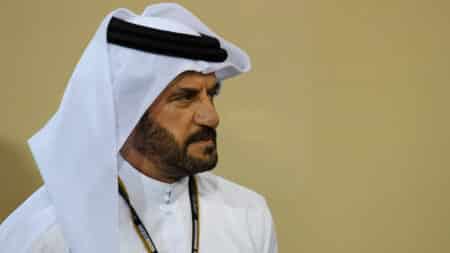
Martin Brundle reveals his F1 driver of 2025
Veteran broadcaster and F1 driver Martin Brundle has picked out the contender he's been most impressed with this year
November’s edition of Motor Sport is a McLaren special, looking back at the Woking team’s time under Ron Dennis.
Dennis took control before the 1981 season, with John Watson winning the British Grand Prix that year, the team’s first victory since 1977. McLaren went on to win seven Constructors’ and 10 Drivers’ Championships under Ron’s stewardship, there was plenty to tell Simon Taylor when he got a rare chance to sit down with him for this month’s ‘Lunch with…’
Dennis worked with some of the best drivers in the history of the sport, starting with Niki Lauda, whom he coaxed out of retirement in 1982. After the Austrian’s low-key first test with McLaren, Ron said: “I was expecting him to take at least a couple of weeks to make his decision, but as we were going back down the M1 from Donington in pouring rain, Niki suddenly said, ‘Yup, I’ll do it.’ A few months later he won his third race for us at Long Beach.”
Lauda ended up taking the title in 1984, beating team-mate Alain Prost by half a point. “The thing about Niki,” says Ron “was that he brought a mental and physical discipline to the job of being a driver that few other drivers had in those days. He taught me, indirectly by observation, how to get an edge by being always totally focused.”
As for the Prost/Senna era, he remains quite understated. It is, after all, a story that has been done to death recently, but Ron gives an insight into his management of the duo. “We had a test at that little Welsh circuit, Pembrey. I flew down in a helicopter, sat them in the back of a hired VW Kombi van, and got very tough with them. In the end they had their arms around each other, begging each other’s forgiveness. That created peace for a time until, as always, one of them couldn’t help himself.”
Senna’s personality and drive were undoubtedly two of the main components of his success, but clearly the team needed to think a bit harder about how to manage these traits than with most drivers. “Ayrton was always very intense, very uptight. He had his own strong values and principles, and he always felt he was fighting the whole world. I conspired with Gerhard [Berger] to make him have some fun.
“With Gerhard’s practical jokes there were no limits – throwing briefcases out of helicopters, stuff like that. That kept breaking the ice. It would always freeze over again, and then we’d think of another way to break it once more.”
Ron is less willing to talk openly about McLaren’s current drivers, but during the team’s last truly dominant era – the late ‘90s – he had two that he is clearly very fond of.
“Mika [Häkkinen] was the most loyal driver in the history of McLaren. As for David, as well as everything else he is such a thoroughly decent human being. When he and his girlfriend were in that dreadful plane crash, when the two pilots were killed, we spirited them away to my house in the South of France, kept them away from the media, and then a week later we were in Barcelona for the Spanish Grand Prix. We did a short media conference to say, ‘Please respect that he doesn’t want to talk about the accident.’ He qualified fourth and finished second, to give us a McLaren 1-2. I was amazed by his strength and his discipline.”
What comes across in this interview is that Ron Dennis cares about racing and about people more than many racing fans would give him credit for. He posed the question himself: “Do I feel pain when we don’t win a race? Yes, acute pain. But that pain is 90 per cent the racer in me…”

Veteran broadcaster and F1 driver Martin Brundle has picked out the contender he's been most impressed with this year

Alain Prost has given his view on Renault exiting F1 as an engine manufacturer

Mark Hughes weighs up an exceptional 2025 rookie class, dissecting four contrasting debut seasons to reveal who truly stood out the most

Mohammed Ben Sulayem's has now been re-elected as FIA president, after a controversial first term. But how did he become the first non-European president in the FIA's history?